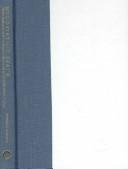| Listing 1 - 7 of 7 |
Sort by
|
Book
Abstract | Keywords | Export | Availability | Bookmark
 Loading...
Loading...Choose an application
- Reference Manager
- EndNote
- RefWorks (Direct export to RefWorks)
Feudalism --- Immunity (Feudalism) --- Féodalité --- Immunité (Féodalisme)
Book
Year: 1936 Publisher: Bruxelles : Impr. des Travaux publics,
Abstract | Keywords | Export | Availability | Bookmark
 Loading...
Loading...Choose an application
- Reference Manager
- EndNote
- RefWorks (Direct export to RefWorks)
Feudalism --- Immunity (Feudalism) --- Féodalité --- Immunité (Féodalisme)
Book
Year: 1912 Publisher: Bonn : A. Marcus & E. Weber,
Abstract | Keywords | Export | Availability | Bookmark
 Loading...
Loading...Choose an application
- Reference Manager
- EndNote
- RefWorks (Direct export to RefWorks)
Immunity (Feudalism) --- Church and state --- Immunité (Féodalisme) --- Eglise et Etat
Book
Abstract | Keywords | Export | Availability | Bookmark
 Loading...
Loading...Choose an application
- Reference Manager
- EndNote
- RefWorks (Direct export to RefWorks)
Sovereignty --- Immunity (Feudalism) --- Souveraineté --- Immunité (Féodalisme) --- History. --- Histoire --- Rhine River Valley --- Germany --- Politics and government --- Administrative and political divisions --- History.
Book
ISBN: 9780801485213 Year: 1999 Publisher: Ithaca : Cornell University Press,
Abstract | Keywords | Export | Availability | Bookmark
 Loading...
Loading...Choose an application
- Reference Manager
- EndNote
- RefWorks (Direct export to RefWorks)
Bannmeile. --- Feudalismo. --- História medieval (aspectos sociopolíticos) --- Idade média (aspectos políticos) --- Immuniteit (recht). --- Immunity (Feudalism). --- Immunität (Recht). --- Immunité (Féodalité). --- Politics and government. --- Privileges (geschiedenis). --- 476-1492. --- Geschichte 500-1100. --- Europa. --- Europe --- Europe. --- Politics and government --- Politique et gouvernement --- Immunity (Feudalism) --- Féodalité --- Privilèges et immunités --- Privilèges et immunités. --- Féodalité --- Privilèges et immunités.
Book
ISBN: 0719055652 0719055644 9780719055645 9780719055652 Year: 1999 Publisher: Manchester Manchester University Press
Abstract | Keywords | Export | Availability | Bookmark
 Loading...
Loading...Choose an application
- Reference Manager
- EndNote
- RefWorks (Direct export to RefWorks)
Immuniteit (Feodaliteit) --- Immunity (Feudalism) --- Immunité (Féodalité) --- Power (Social sciences) --- Middle Ages --- Privileges and immunities --- History --- Europe --- Politics and government --- 476-1492 --- Power (Social sciences) - Europe - History --- Privileges and immunities - Europe - History

ISBN: 0801435234 0801485215 1501718681 Year: 1999 Publisher: Ithaca, N.Y. : Baltimore, Md. : Cornell University Press, Project MUSE,
Abstract | Keywords | Export | Availability | Bookmark
 Loading...
Loading...Choose an application
- Reference Manager
- EndNote
- RefWorks (Direct export to RefWorks)
Why did early medieval kings declare certain properties to be immune from the judicial and fiscal encroachments of their own agents? Did weakness compel them to prohibit their agents from entering these properties, as historians have traditionally believed? In a richly detailed book that will be greeted as a landmark addition to the literature on the Middle Ages, Barbara H. Rosenwein argues that immunities were markers of power. By placing restraints on themselves and their agents, kings demonstrated their authority, affirmed their status, and manipulated the boundaries of sacred space.Rosenwein transforms our understanding of an institution central to the political and social dynamics of medieval Europe. She reveals how immunities were used by kings and other leaders to forge alliances with the noble families and monastic centers that were central to their power. Generally viewed as unchanging juridical instruments, immunities as they appear here are as fluid and diverse as the disparate social and political conflicts that they at once embody and seek to defuse. Their legacy reverberates in the modern world, where liberal institutions, with their emphasis on state restraint, clash with others that encourage governmental intrusion. The protections against unreasonable searches and seizures provided by English common law and the U.S. Constitution developed in part out of the medieval experience of immunities and the institutions that were elaborated to breach them.
Immunity (Feudalism) --- Immunité (Féodalisme) --- Europe --- Politics and government --- History --- Politique et gouvernement --- Histoire --- Immunité (Féodalisme) --- Feudalism --- Immunität --- Bannmeile --- HISTORY / Medieval --- Idade media (aspectos políticos) --- Feudalismo. --- História medieval (aspectos sociopolíticos) --- Privileges (geschiedenis) --- Immuniteit (recht) --- Immunite (Feodalite) --- Dark Ages --- History, Medieval --- Medieval history --- Medieval period --- Middle Ages --- World history, Medieval --- World history --- Civilization, Medieval --- Medievalism --- Renaissance --- Europa. --- Europe. --- Council of Europe countries --- Eastern Hemisphere --- Eurasia
| Listing 1 - 7 of 7 |
Sort by
|

 Search
Search Feedback
Feedback About UniCat
About UniCat  Help
Help News
News